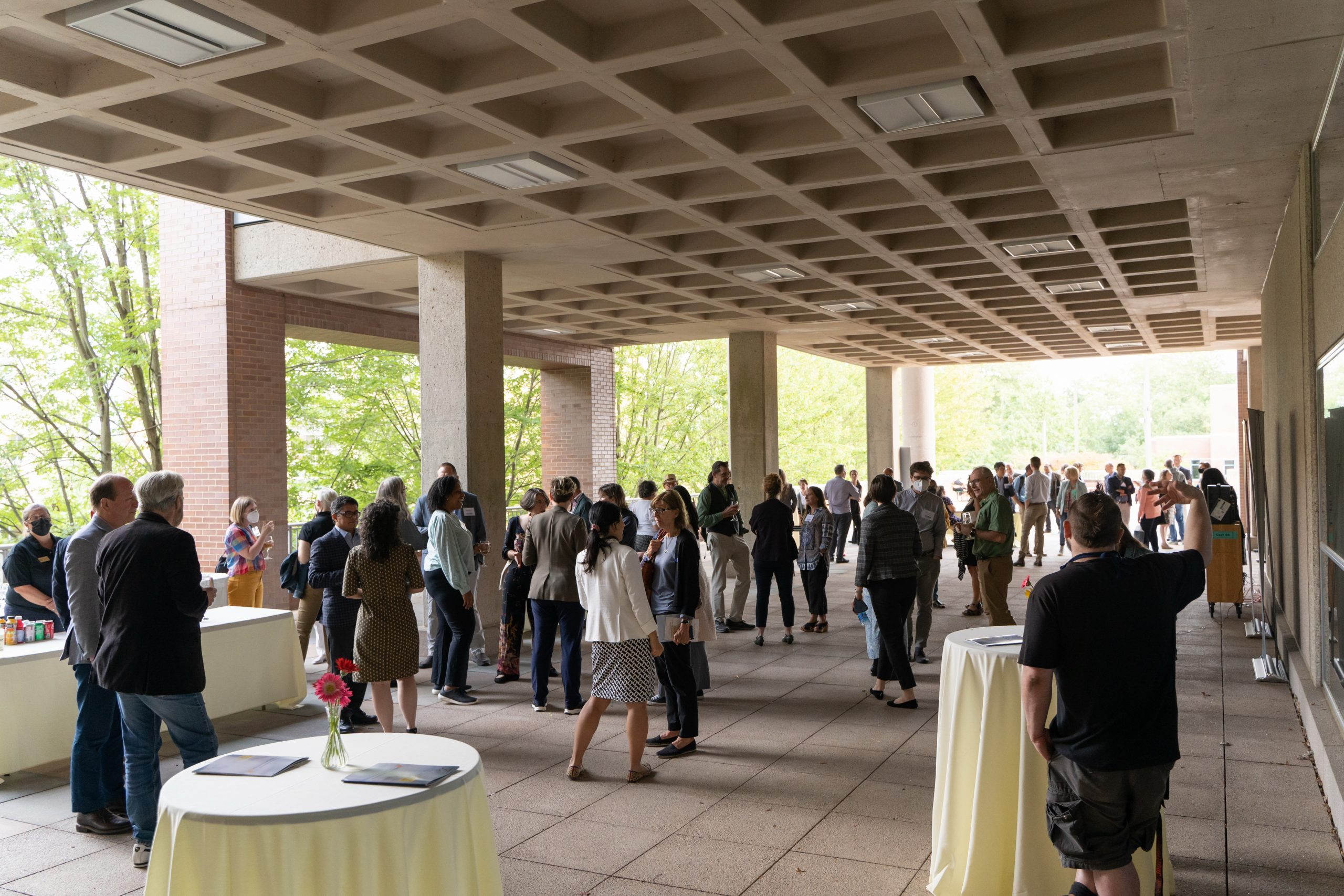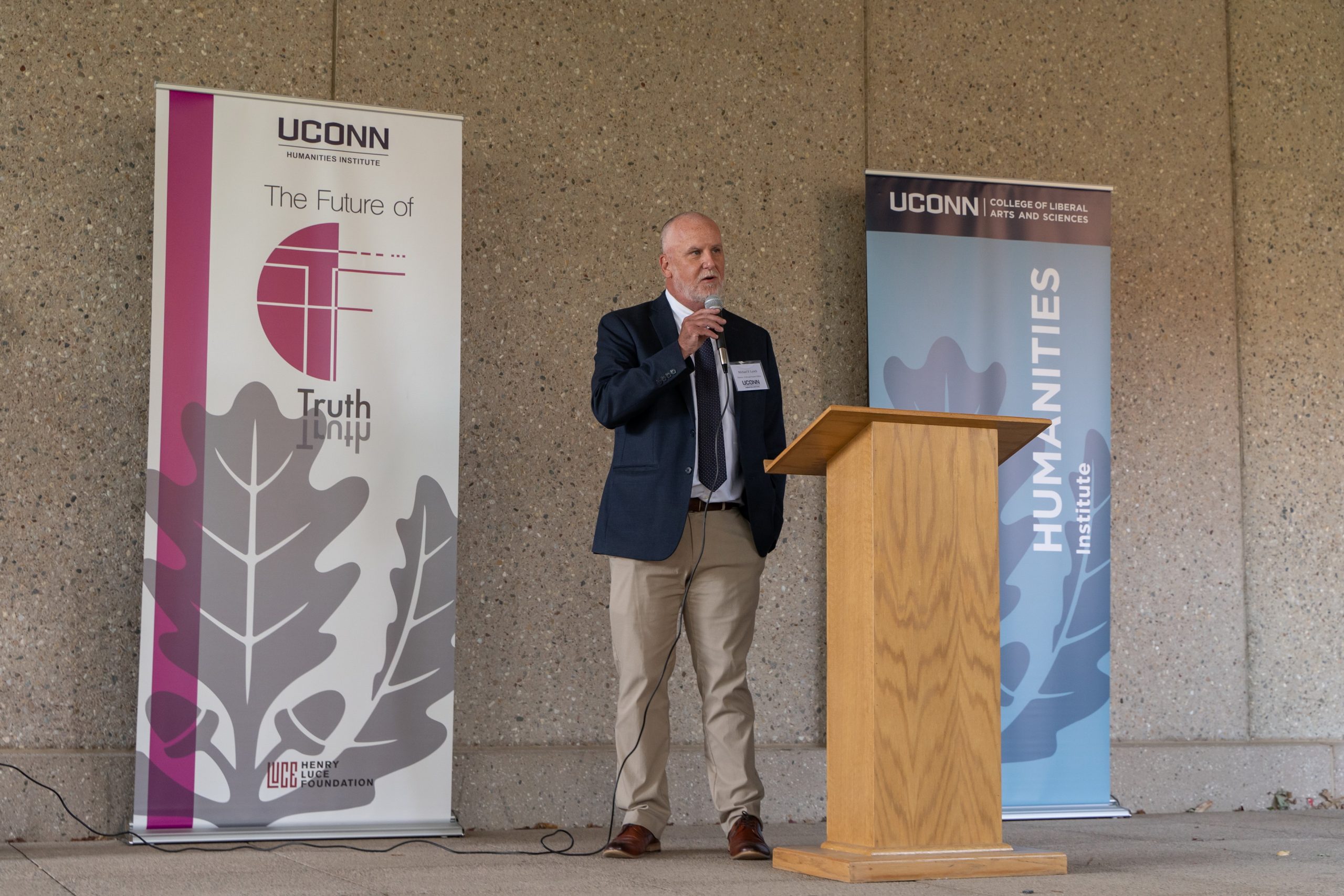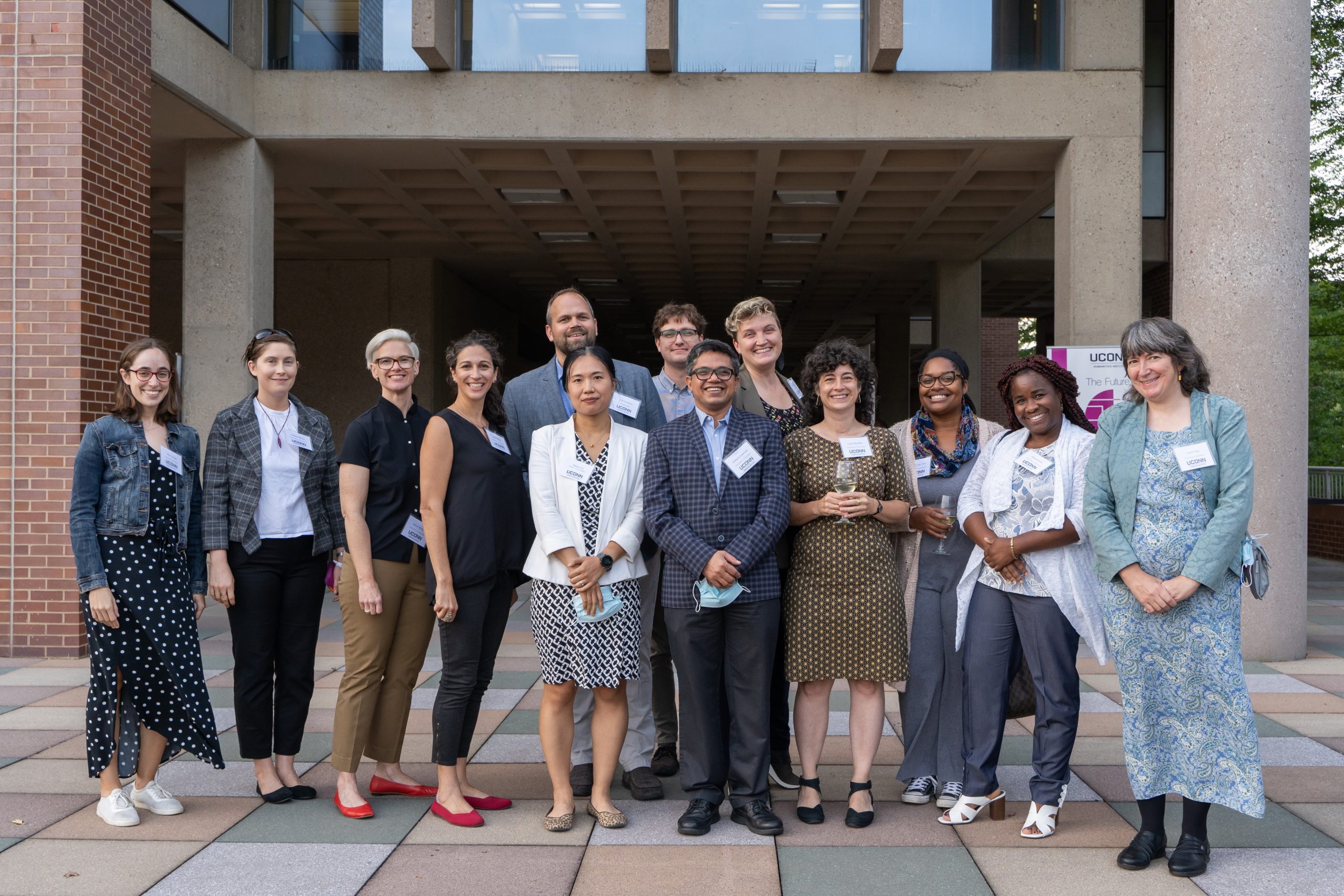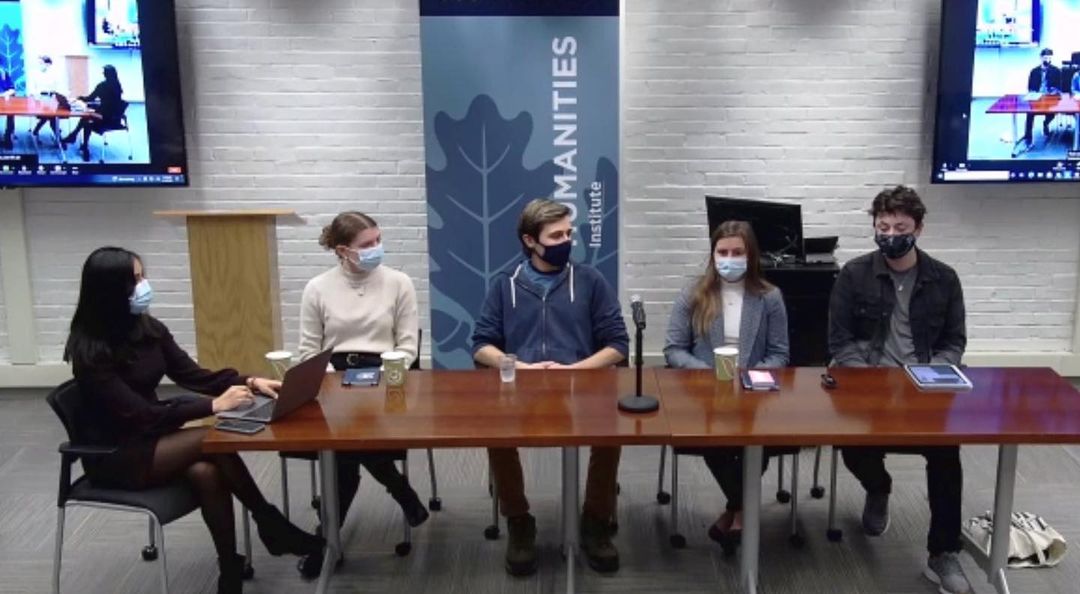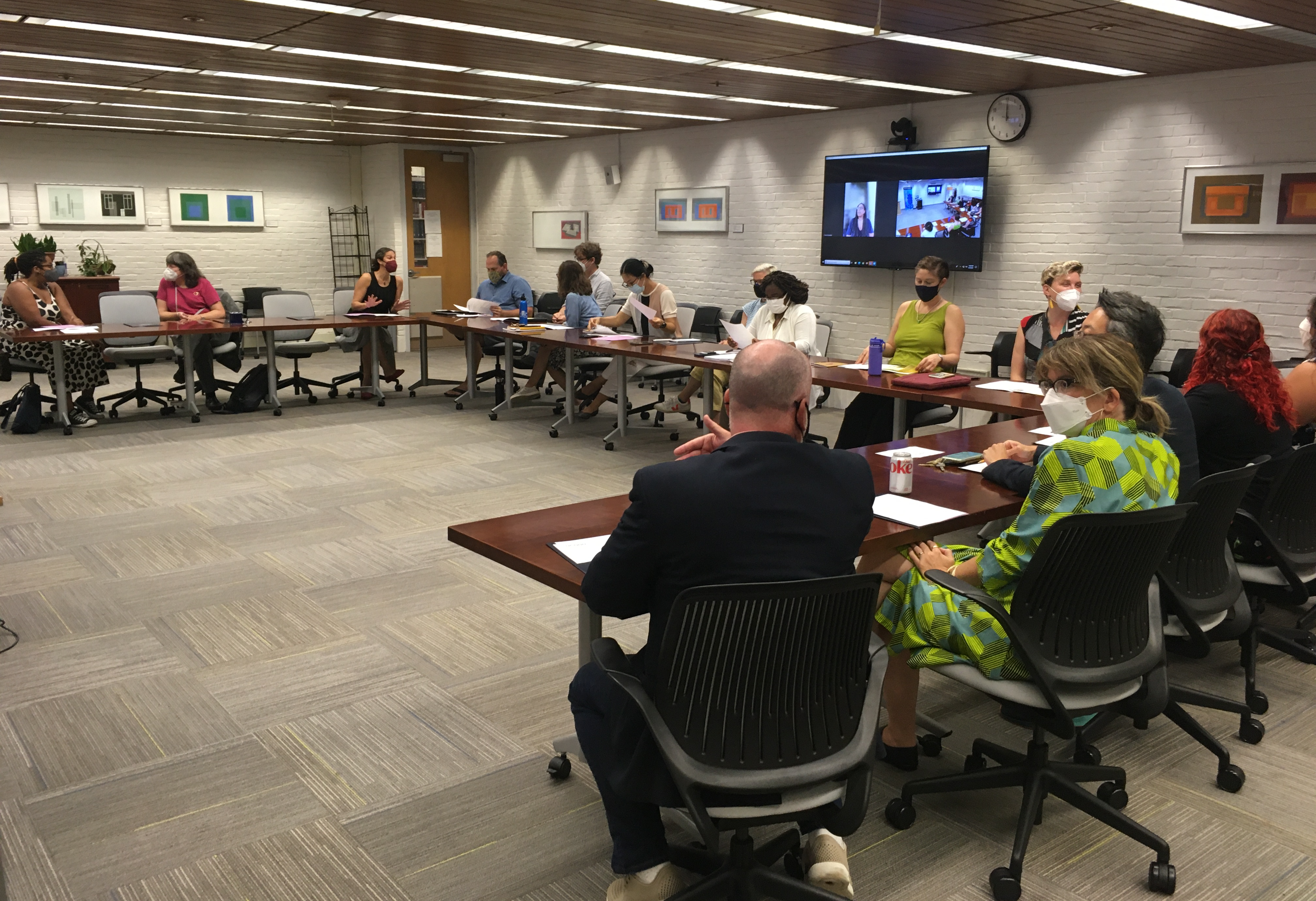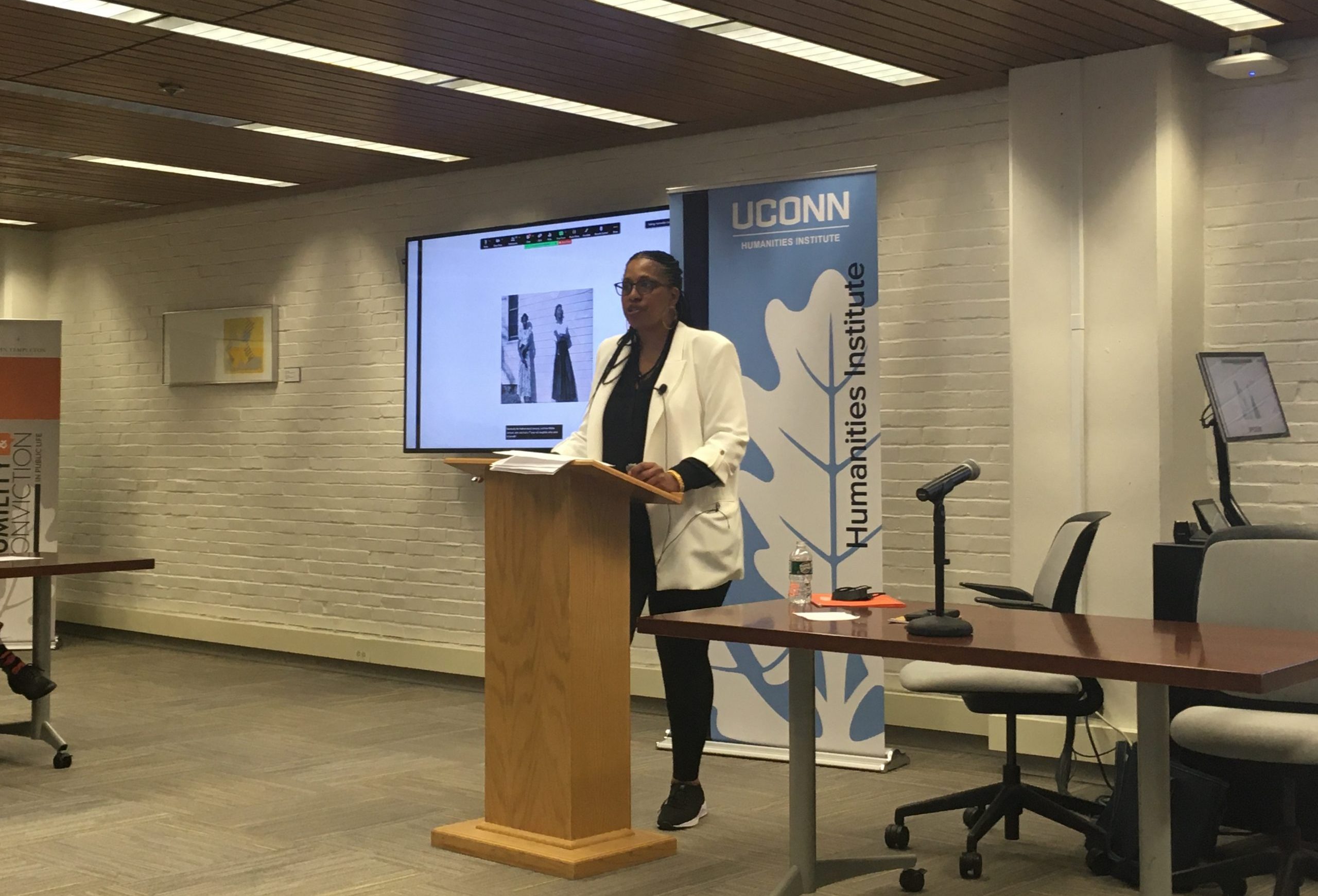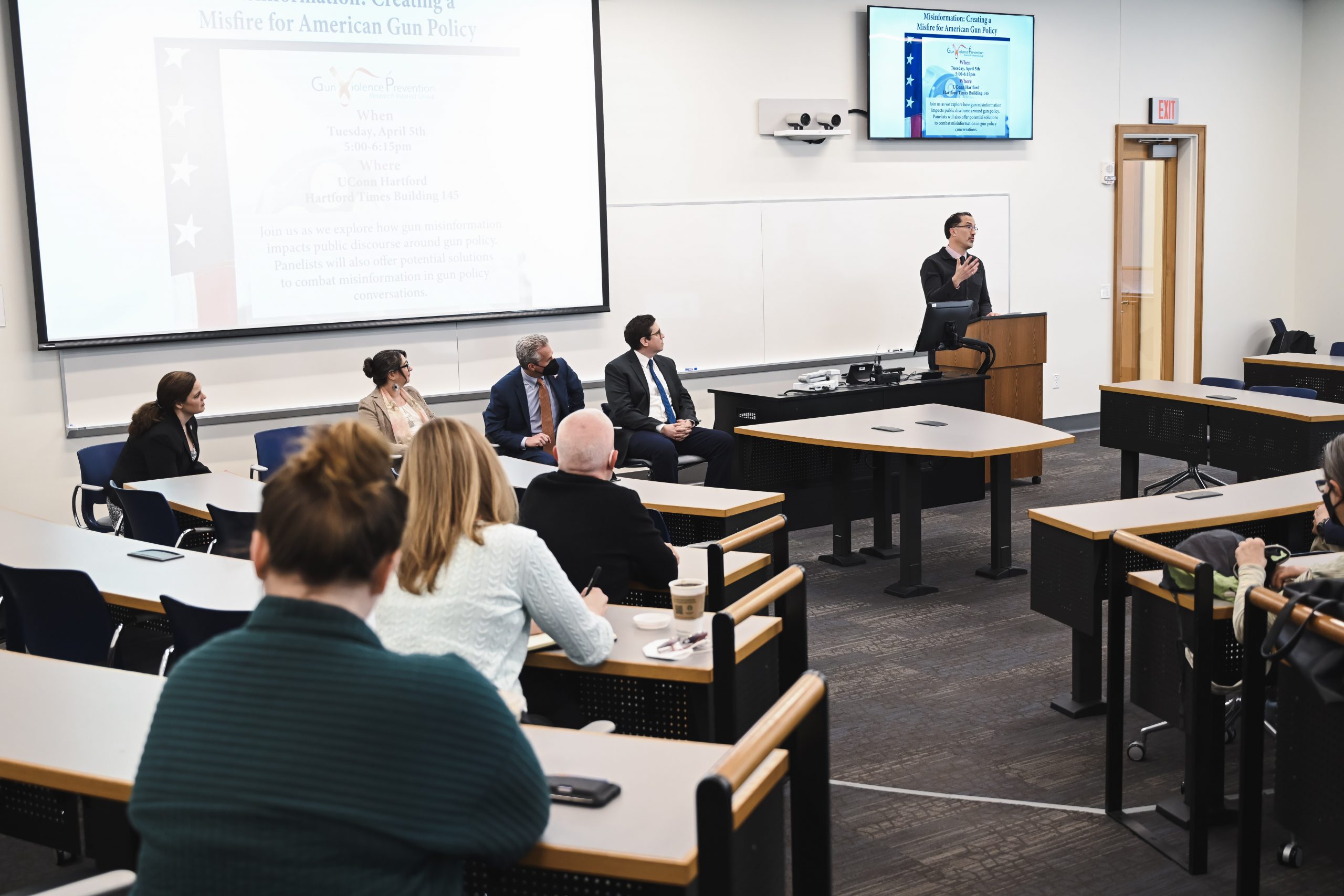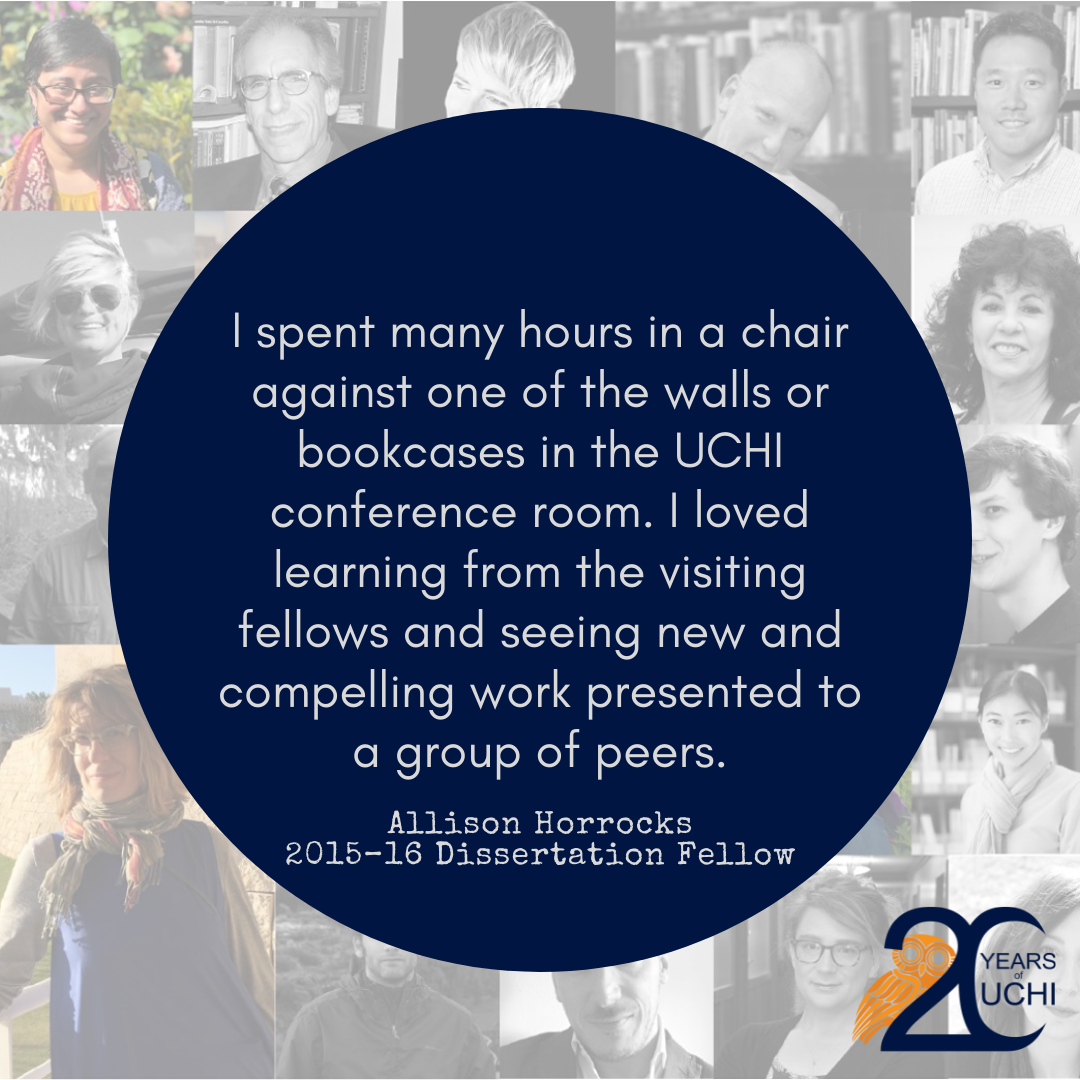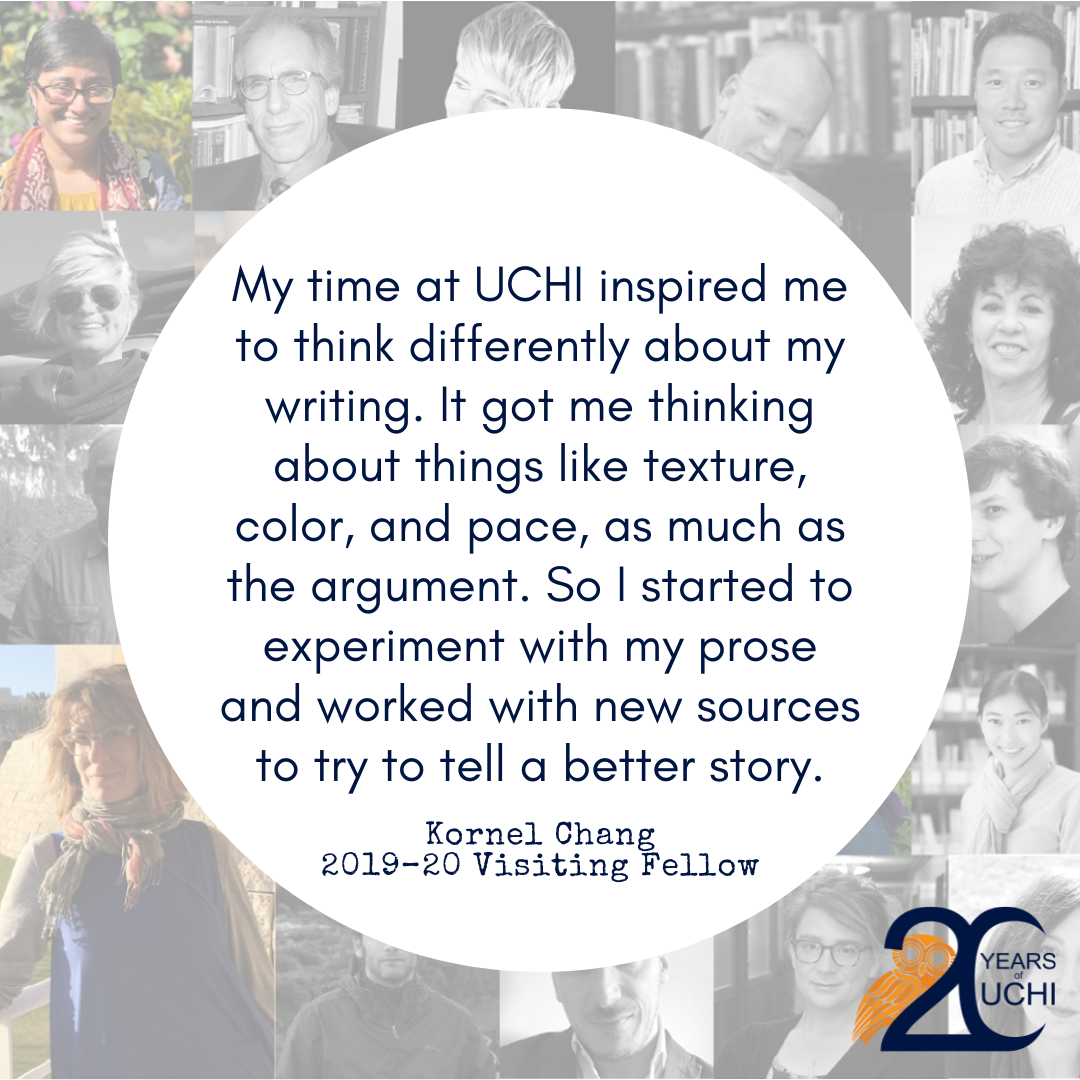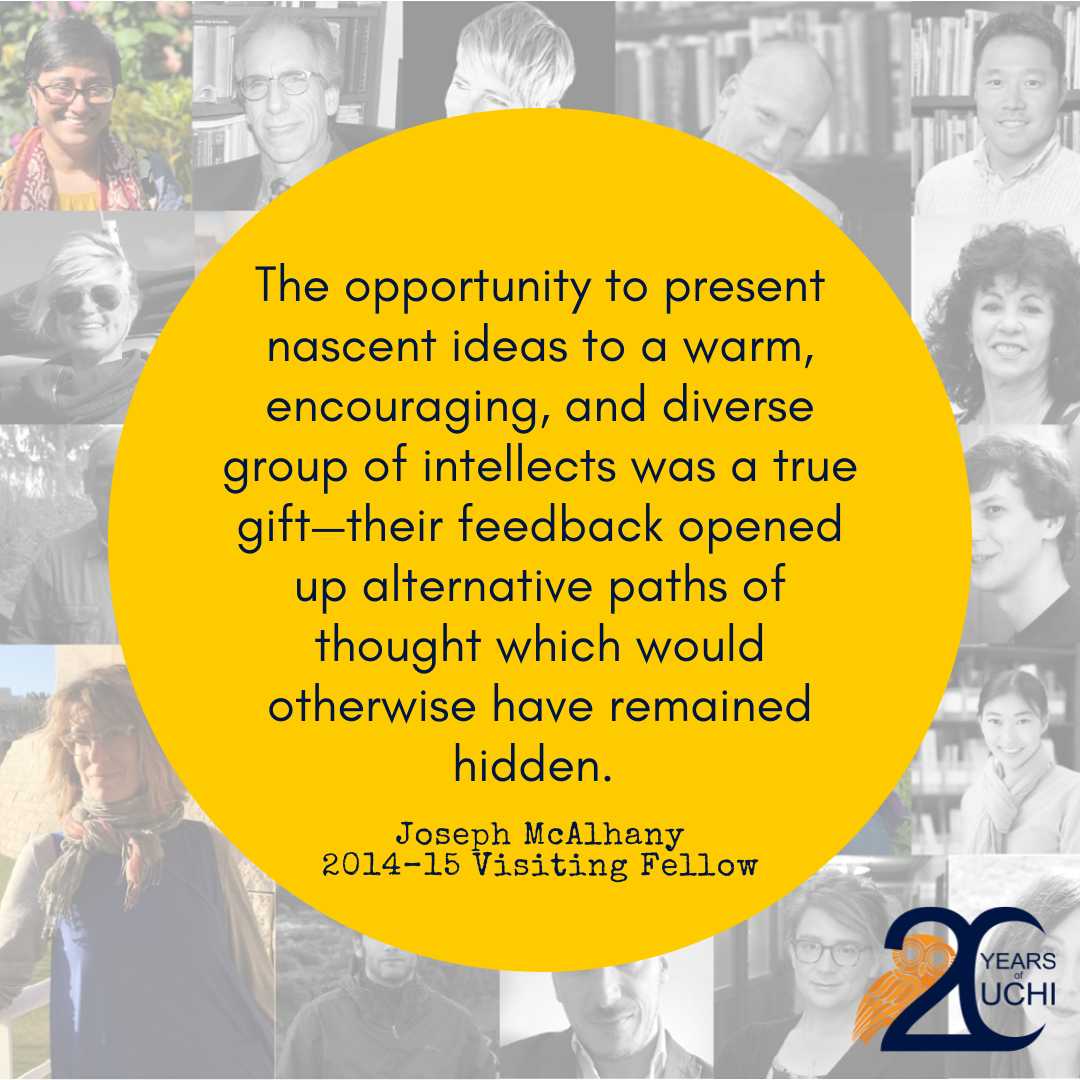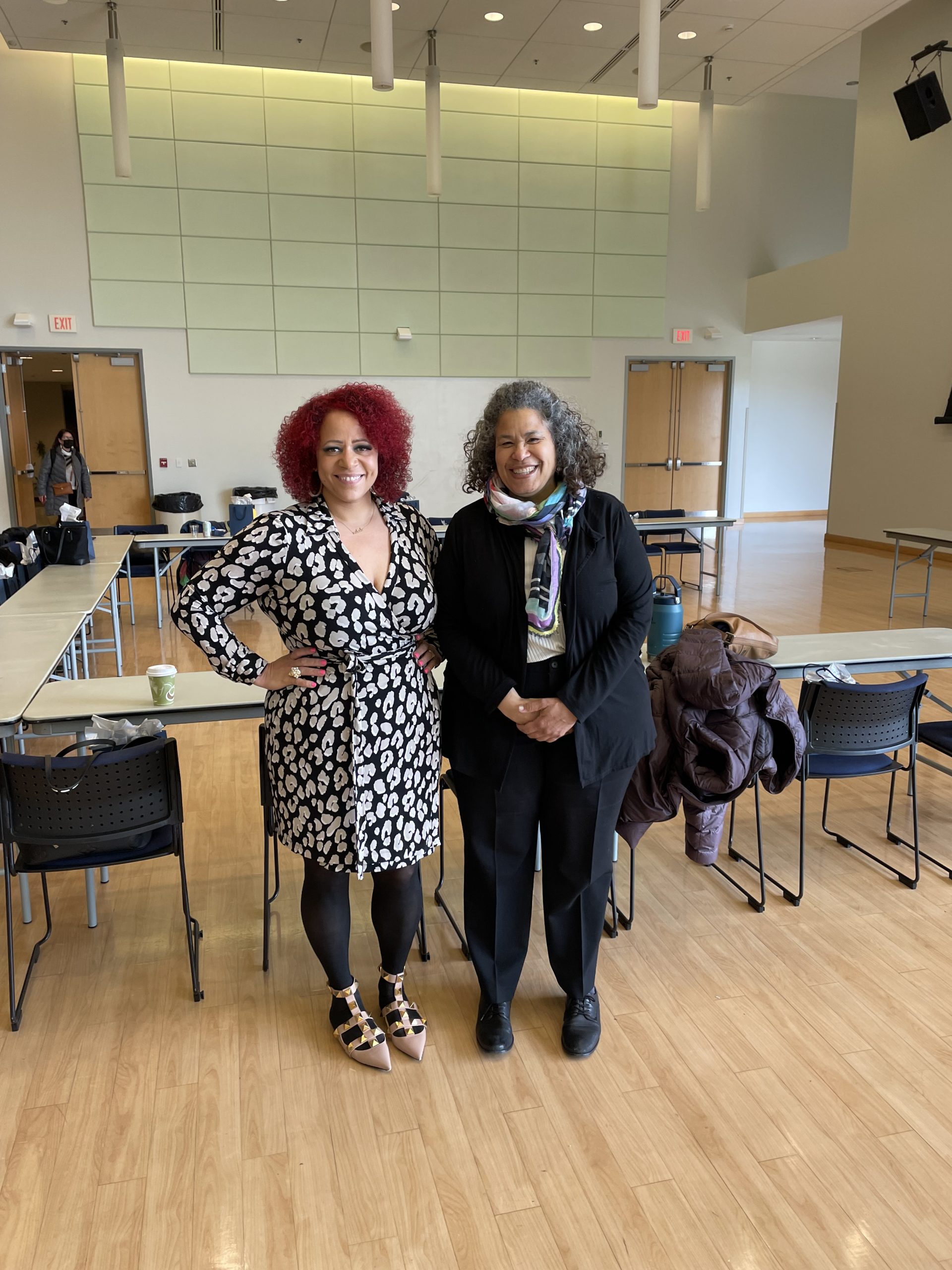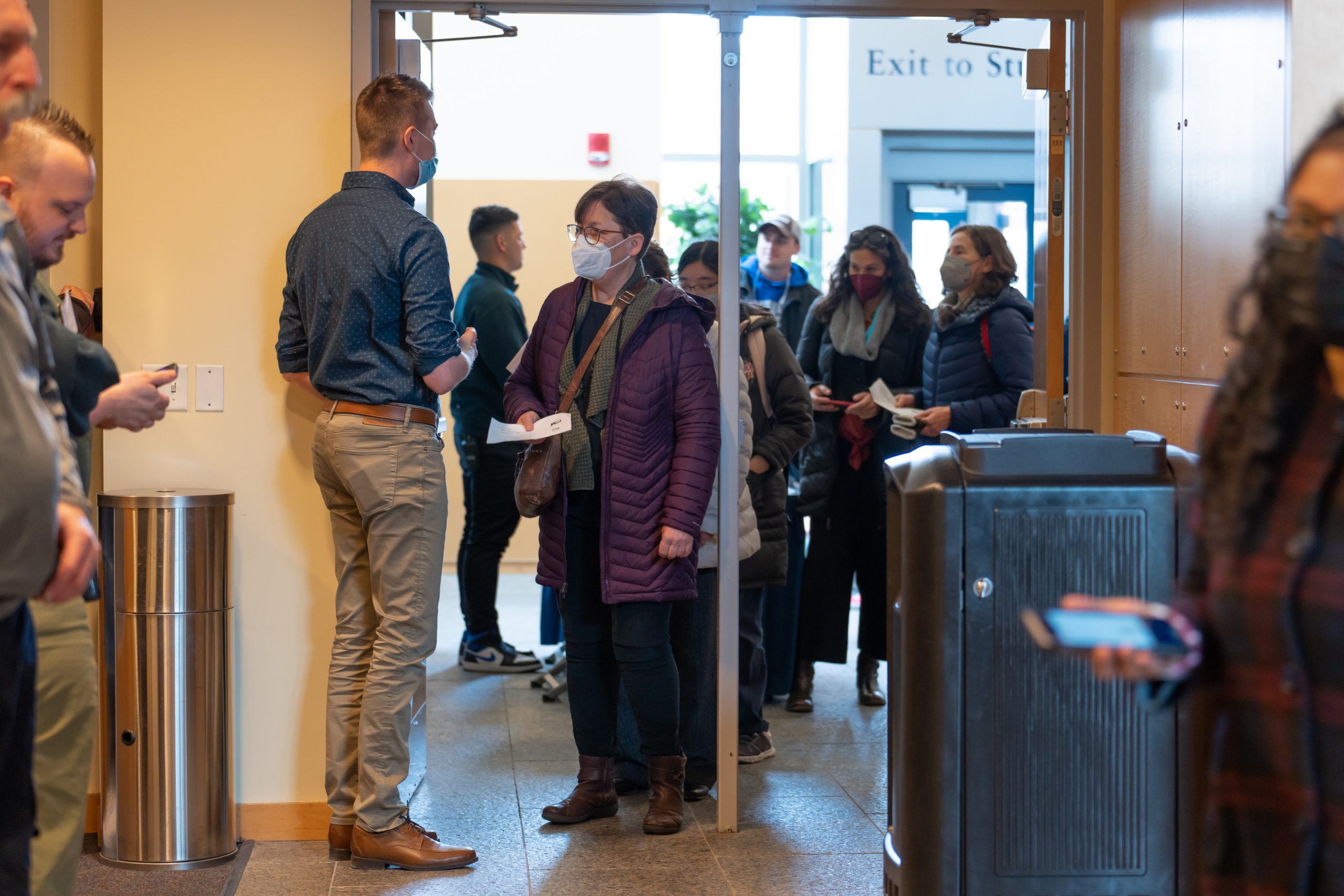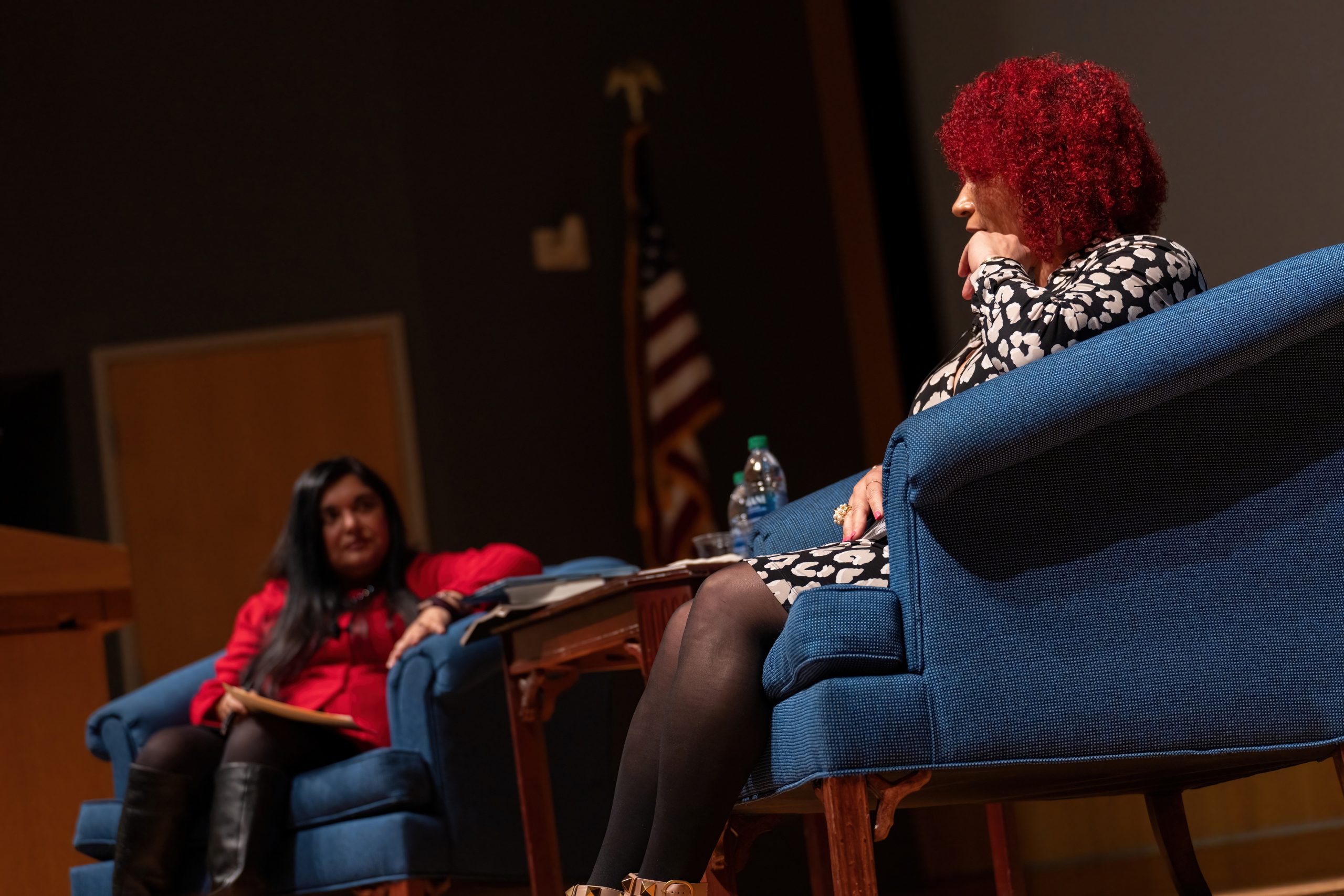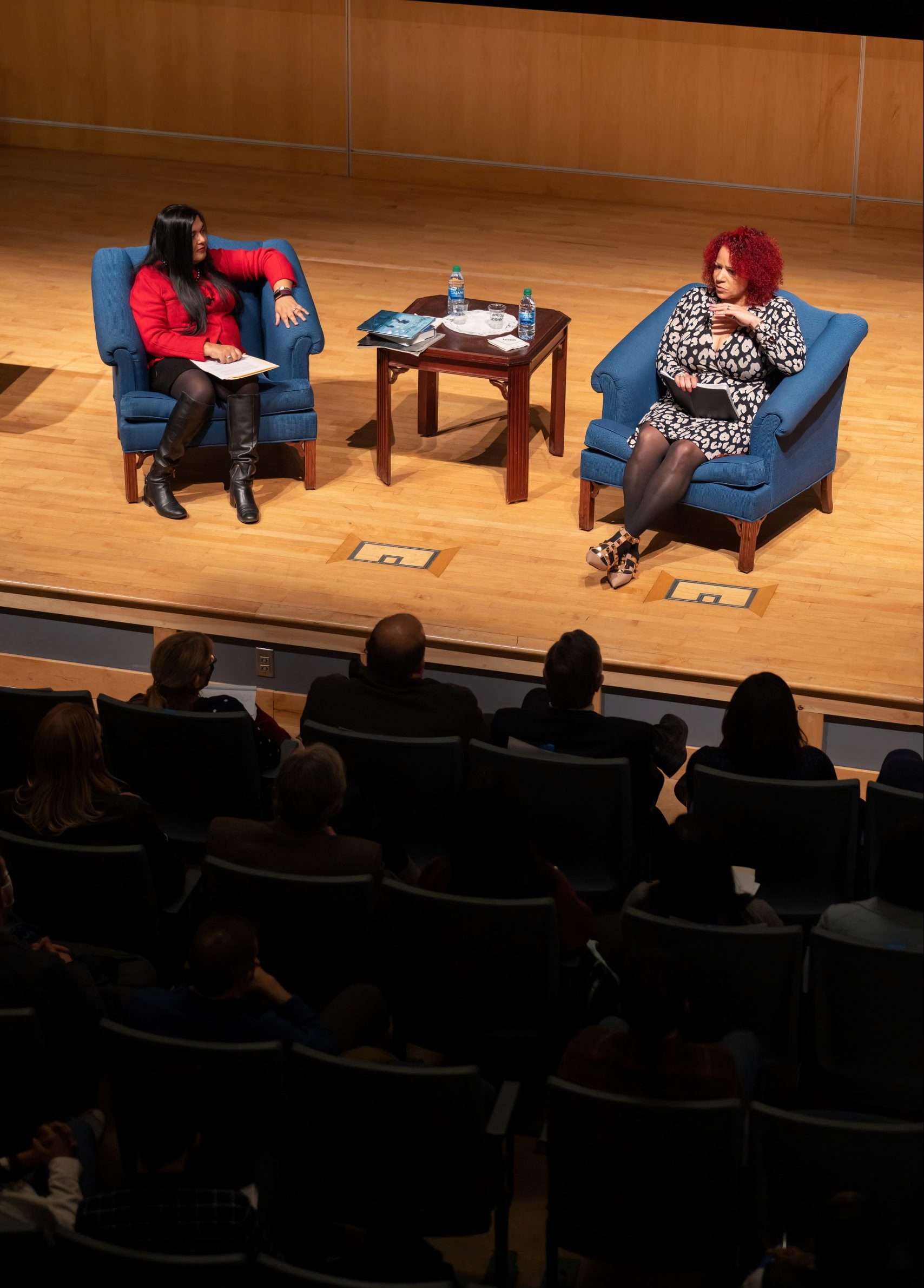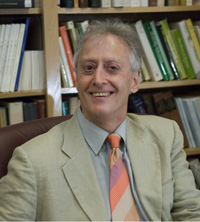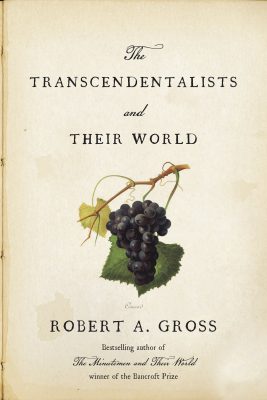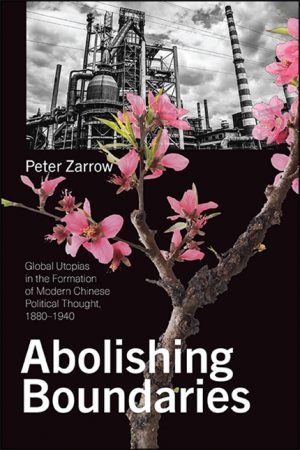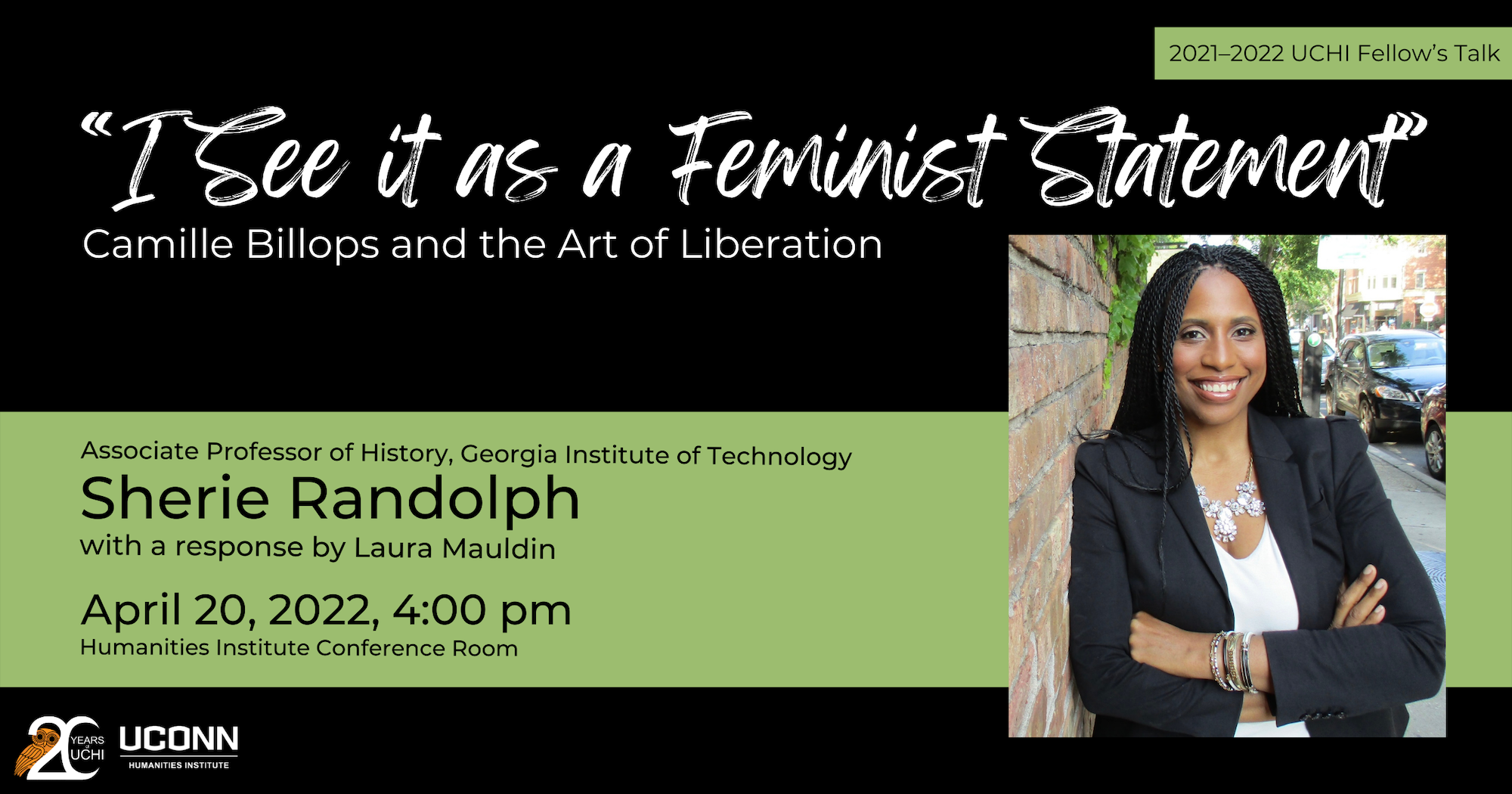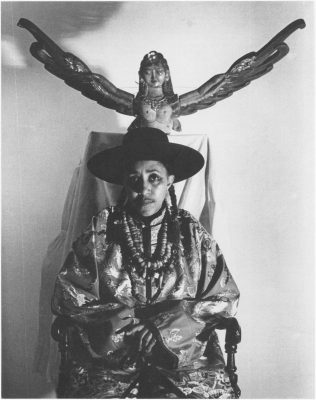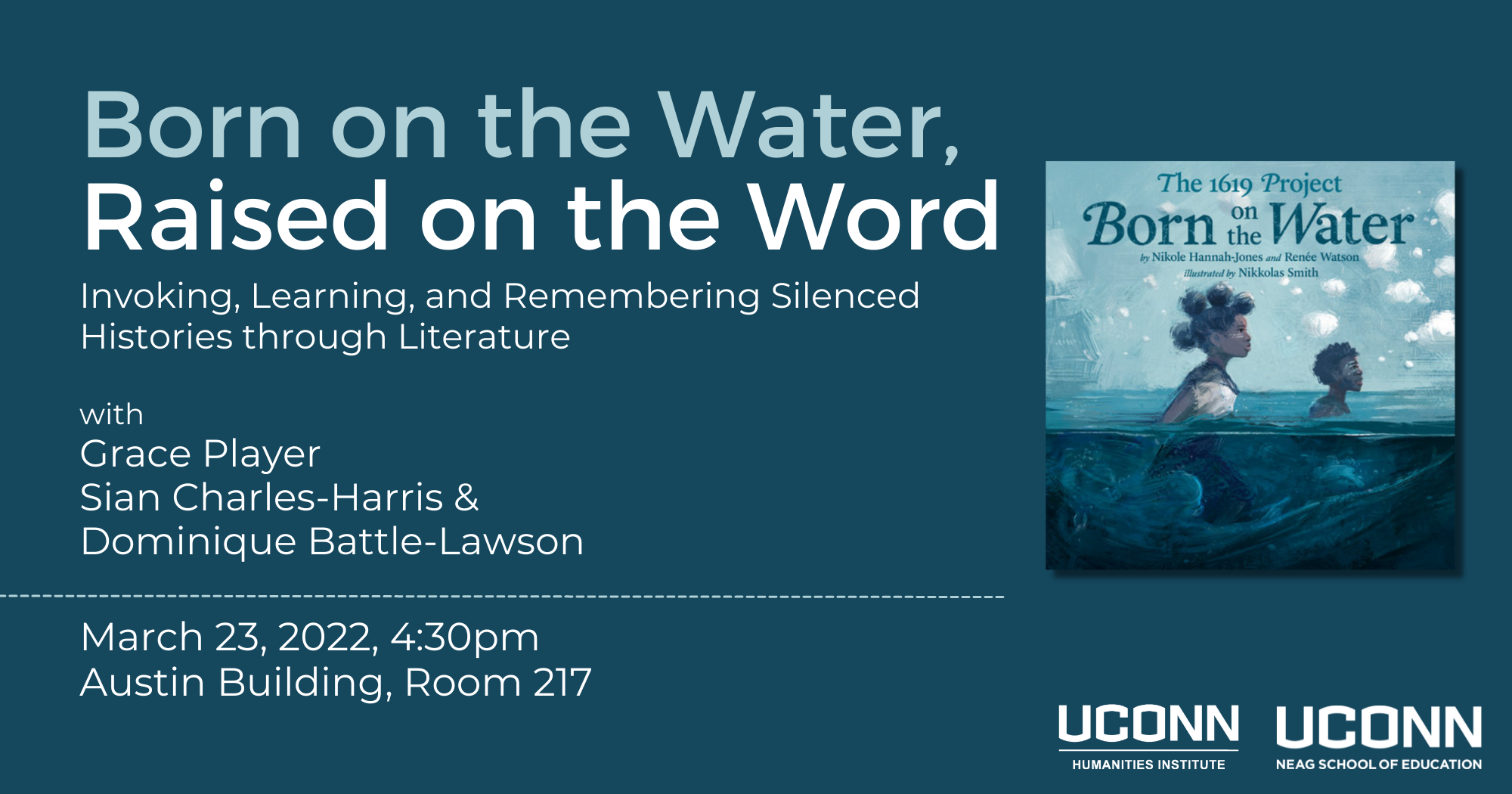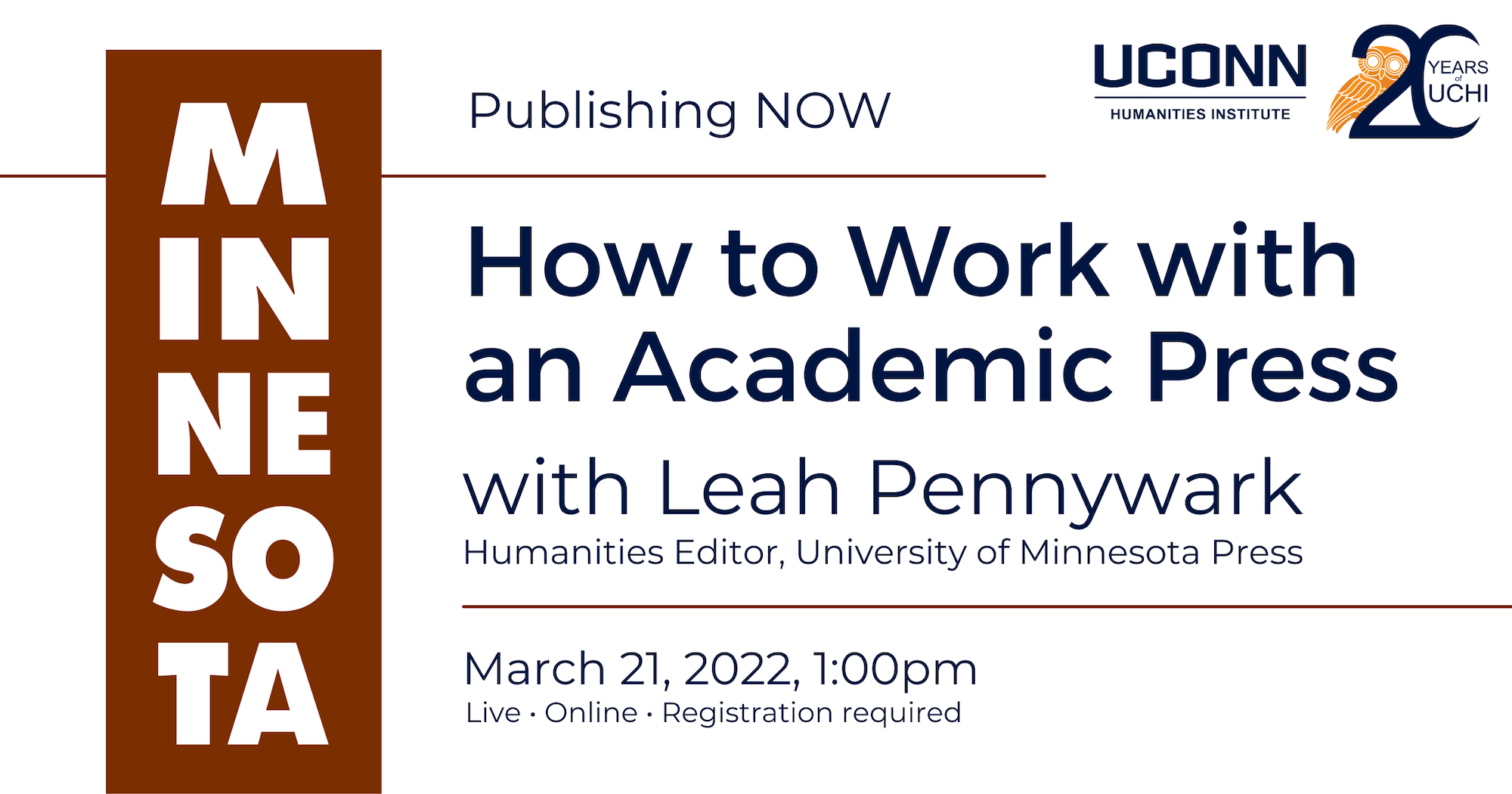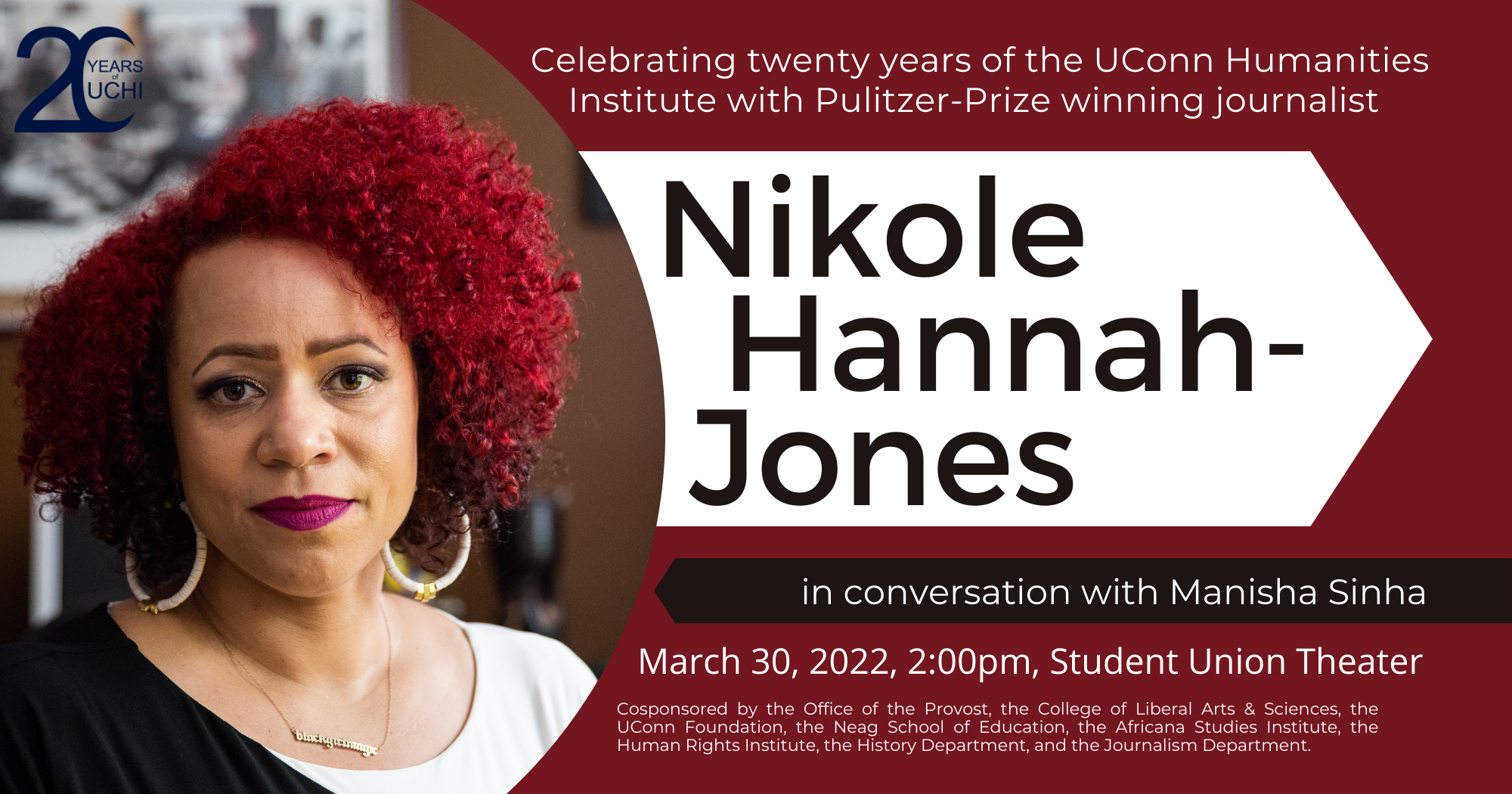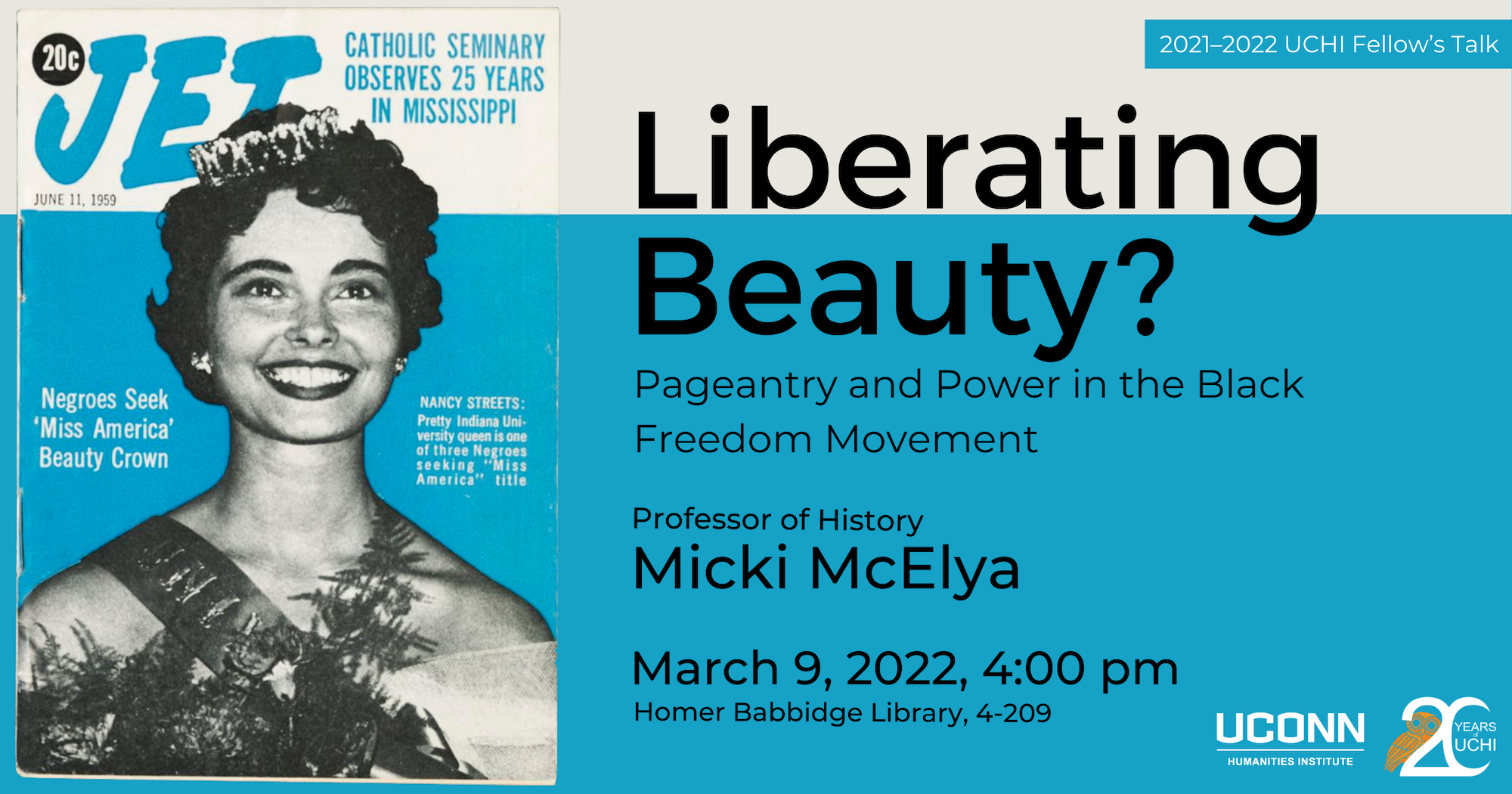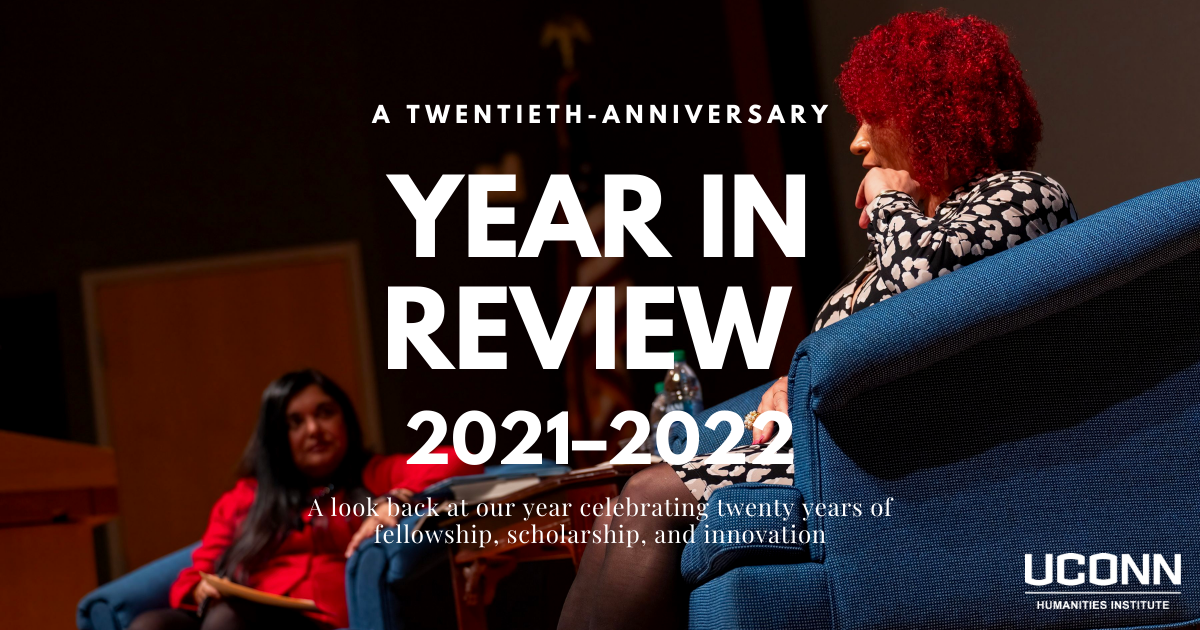
It has been a celebratory year here at UCHI. The year began with our return to in-person work after our completely virtual 2020–2021 academic year. For the first time since March 2020 fellows could use their offices, share thoughts around the coffee machine, and attend each other’s talks in our conference room. Visitors to the Institute could once again browse the fruits of fellowships past on our bookshelves, peruse past winners of the Sharon Harris Book Award, and attend post-event receptions in our collaborative space. And while that would be more than enough cause for celebration, this year we also commemorated the Institute’s 20th anniversary. Since its founding in 2001 UCHI has served as a hub for all things humanities at UConn. Over the years, we’ve embarked on projects like the Digital Humanities and Media Studies Initiative, invited brilliant speakers like Toni Morrison to campus, and offered time and space for work to over 250 fellows. We are incredibly proud of how the Institute has flourished over these twenty years. Here’s a look back at some of what we did as we celebrated twenty years of UCHI. (Click any image to see it full-size.)
Welcome Reception
The year began with our welcome reception, held outside Homer Babbidge Library. We were fortunate to have good weather as we gathered under the portico, seeing colleagues in person for the first time in a year and half. Director Michael Lynch addressed the gathered crowd, thanking UCHI’s founding director, Richard Brown, as well as administrators, fellows, and staff past and present for their support of the Institute, noting that, “We’ve come a long way in twenty years thanks to the work of so many—from a small suite of rooms in Austin to our expansive home here in the library, the intellectual center of campus.”
Humanities Undergraduate Research Symposium
In November, we welcomed a group of talented undergraduate humanities researchers to our conference room for the first student-run humanities research symposium at UConn. Students presented on topics from human rights to Shakespeare to Afrofuturism, attended a workshop about humanities-related careers, and listened to a keynote address by UCHI’s own Alexis Boylan. The student organizers, Madelon Morin-Viall, Aarushi Nohria, and Rylee Thomas deserve all the credit for spearheading what we hope will become an annual tradition.
Events
We hosted both hybrid and Zoom-only events this year, inviting members of the UConn community and beyond to learn about publishing for the public, Black digital humanities, the artist Camille Billops, and more. We also co-sponsored more than a dozen events across campus and funded working groups that explored topics from political theory to the history of science.
Celebrating Twenty Years of Fellows
Throughout the year, we published interviews with past fellows about their experience at UCHI, their fellowship projects, and what they are working on now.
Nikole Hannah-Jones
Nikole Hannah-Jones and Manisha Sinha talked history, race, journalism, and the nature of patriotism at our capstone event, attended (in person and online) by over 650 people. Hannah-Jones also met with UConn’s Faculty of Color Working Group, directed by Melina Pappademos.
